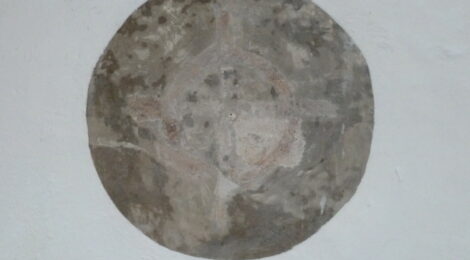
SERMON: The Christian Way of Life
A sermon preached by David Barton at the Evening Eucharist on the 12th Sunday after Trinity, 30 August 2020.
There is nothing easy about that Gospel we have just read. We can all feel sympathetic to Simon Peter, and the rest of the disciples hearing it: “Take up the cross, lose your life in order to find it. Deny yourself.” Tough terms. And the epistle before it was in much the same vein. The cross marked nature of the Christian life never easy to hear about and never easy to take on board.
But I’d like to suggest that perhaps we do know more about this than we realise. There was a poignant piece of film on Channel 4 News the other day. In war torn Syria, the province of Idlib has a huge and growing number of orphaned children. The film showed one such family: 10 orphaned children, the youngest about 2 the oldest 14, and one child badly disabled and disfigured in a bomb blast. Their fathers were six brothers, all of whom had been killed in the war, their mothers either dead or missing. So now their grandmother looks after them. Somehow, in her small house, and clearly with very little money, she puts food on the table, clothing them and caring for them, with a tough, loving affection. And the eldest, 14, has now given up school – clearly regretting it, but wanting to earn a little money to help his grandmother and to buy the medicines his sick brother so badly needs.
And of course we could multiply such instances in our own experience: the woman who gives up her job to care for sick parents, the doctors and nurses working long hours and risking their lives for COVID patients. It’s the part of our human behaviour we admire and treasure most. Jesus calls us into the best of ourselves.
But the Syrian example is a telling one for another reason, and that is to do with the urgency of Jesus call. We easily forget that Jesus lived in an occupied land, where poverty had reduced life expectancy to thirty years. There were huge gaps between rich and poor – that parable of Dives and Lazarus was all too true to life. And we now know that the devil possession, the Gospels frequently speak of, was really the manifestation of the trauma people had experienced at the hands of Roman soldiers. It’s out of all that that the Gospel is born. Far too easily we locate it on some idilic Galilean hillside. Perhaps that played a part. But we should remember that Jesus’ message was shaped in a harsh, troubled world.
To remember all that gives focus to our reading of the teaching of Jesus and makes us notice its urgency. He never lets us forget how easily humanity falls into disfunction. But what he says today in that Gospel has to be set within the totality of his message – and it was, and still is, startling. Despite the hardships and undoubted cruelties around him, he constantly saw the world shot through with the glory of God, and taught us to look for it – a glory all the more glorious because we know we do not and cannot possess it. To see that is to gain balance and perspective. He teaches us to see that life is a gift – always gifted, never to be taken for granted And he taught the values of a simple life, urging us to share, to give, not out of our plenty but out of our sufficiency, if need be even sharing what little we have; to go the second mile with good grace, and to see ourselves always as sisters and brothers of each other. That’s the cross shaped nature of the life he calls us into, but it is as much linked to glory as it is tough. Spiritual path it certainly is, but it’s always a pragmatic step. How we behave with each other matters.
In Matthew’s Gospel Jesus sums it up in one great final parable that is startlingly simple: we should clothe the naked, feed the hungry, give water to the thirsty and care for the sick – and do it, as it were unconsciously without thought to whom we give. Simply, that we see the need. Need and response flow together…..
Some twenty five years before Matthew wrote all this for us, collecting the oral traditions of Jesus followers, and the scraps of paper on which they were written, Paul was writing to the Romans. We easily forget that these letters are the first New Testament documents to be written.
Paul, throughout this great epistle, has been talking about the victory of good over evil, achieved by the life of Christ and his death on the Cross. And now, suddenly, he is talking about living it all out. And this is the victory: If your enemy is hungry, feed him, thirsty, give him to drink…. There are to be no careful calculations of who deserves what, of rights rewarded, wrongs paid back. We are to show generous, self giving, overflowing love, meeting the other person where they are, always with blessings, always with peace. Evil is to be overcome with good…. It is the way of the cross because to do that means forgetting ourselves, simply letting go. And as we do so, we discover the God who walks with us.
And Paul is always clear about this: Those who take up the path of Jesus find themselves gifted with the spirit of Christ. We are, you and I, God’s New Creation. We learn to love by loving….to give by giving….to forgive by forgiving. To let go of our own resources is to make room for the inexhaustible supply of Christ’s love flowing through us. We ourselves become the change we long to see….





